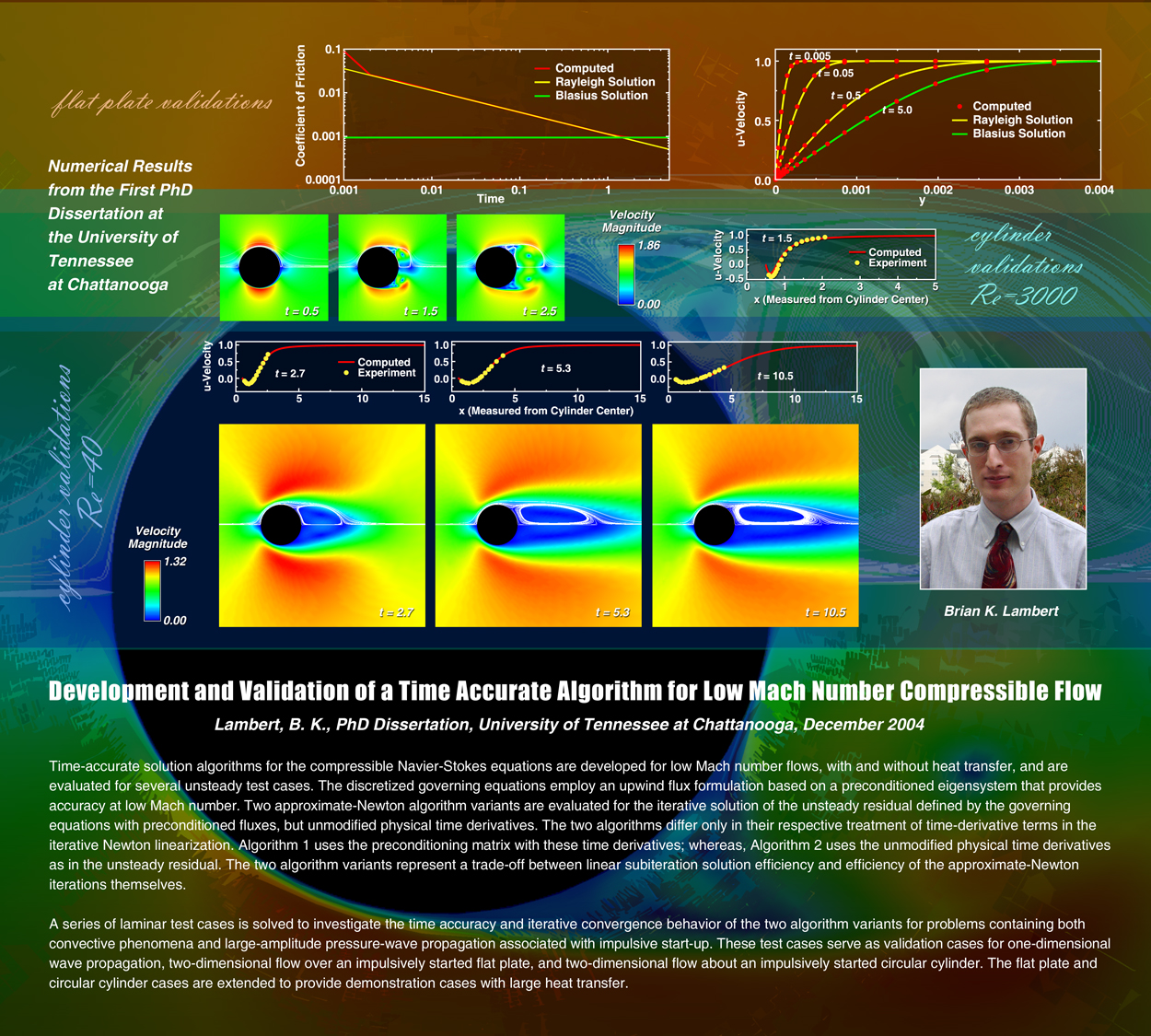Brian Lambert
Development and Validation of a Time Accurate Algorithm for Low Mach Number Compressible Flow
A Dissertation Presented for the Doctor of Philosophy in Computational Engineering, The University of Tennessee at Chattanooga
Brian K. Lambert, December 2004
Abstract:
Time-accurate solution algorithms for the compressible Navier-Stokes equations are developed for low Mach number flows, with and without heat transfer, and are evaluated for several unsteady test cases. The discretized governing equations employ an upwind flux formulation based on a preconditioned eigensystem that provides accuracy at low Mach number. Two approximate-Newton algorithm variants are evaluated for the iterative solution of the unsteady residual defined by the governing equations with preconditioned fluxes, but unmodified physical time derivatives. The two algorithms differ only in their respective treatment of time-derivative terms in the iterative Newton linearization. Algorithm 1 uses the preconditioning matrix with these time derivatives; whereas, Algorithm 2 uses the unmodified physical time derivatives as in the unsteady residual. The two algorithm variants represent a trade-off between linear subiteration solution efficiency and efficiency of the approximate-Newton iterations themselves.
A series of laminar test cases is solved to investigate the time accuracy and iterative convergence behavior of the two algorithm variants for problems containing both convective phenomena and large-amplitude pressure-wave propagation associated with impulsive start-up. These test cases serve as validation cases for one-dimensional wave propagation, two-dimensional flow over an impulsively started flat plate, and two-dimensional flow about an impulsively started circular cylinder. The flat plate and circular cylinder cases are extended to provide demonstration cases with large heat transfer.
